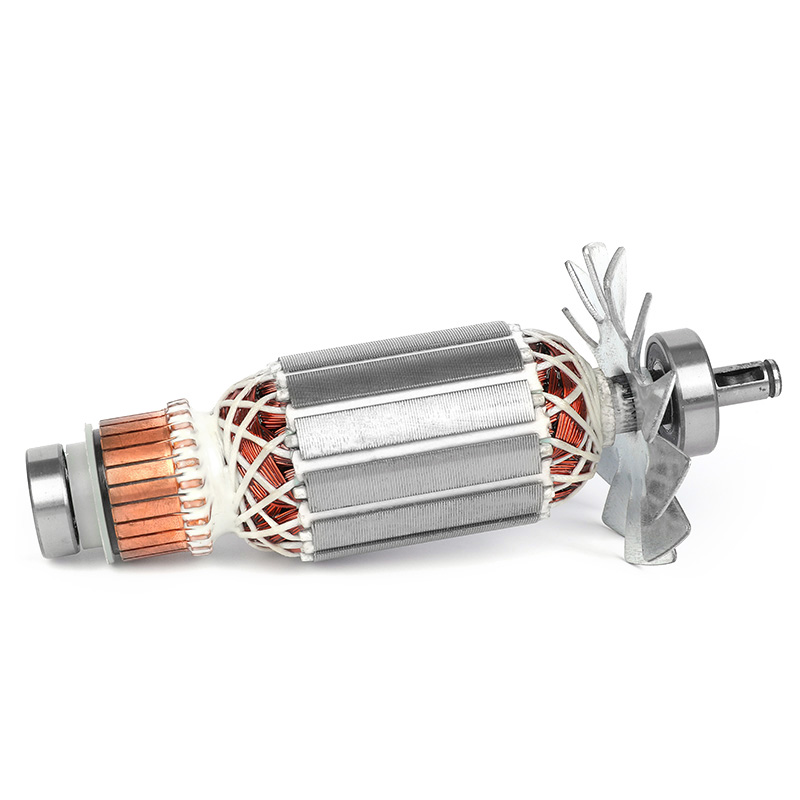- Home
- Products
- About Us
- Application
- News
- Contact Us
Web Menu
- Home
- Products
- About Us
- Application
- News
- Contact Us
Product Search
Exit Menu
What Role Does Material Selection Play in the Performance of Power Tool Stators?

In the manufacturing of power tools, the stator is a crucial component that directly affects the device's efficiency, durability, and overall performance. The stator for power tools factory must carefully consider material selection when producing these components, as the choice of materials influences key operational characteristics.
Importance of Stator Materials in Power Tools
The stator is the stationary part of an electric motor, responsible for generating a magnetic field that interacts with the rotor to create motion. Because of its role in electrical and mechanical functions, the material used in the stator must meet specific electrical, thermal, and mechanical requirements.
Choosing suitable materials helps ensure that power tools operate efficiently and maintain reliability under demanding conditions such as high-speed rotation, heavy loads, and continuous use.
Core Material and Magnetic Properties
One of the most critical materials in a stator is the core, typically made from laminated electrical steel. The quality and type of steel significantly affect magnetic performance. High-quality steel reduces energy losses caused by hysteresis and eddy currents, improving the motor's efficiency.
A stator for power tools factory often selects steel with specific grain orientations and coatings to minimize these losses. Proper lamination thickness and insulation between layers also help limit eddy currents, enhancing overall motor performance.
Insulation Materials and Electrical Safety
In addition to the core, insulation materials used in stator windings play a vital role. These materials must withstand high voltages and temperatures generated during operation. Selecting insulation with good dielectric strength and thermal resistance helps prevent electrical short circuits and prolongs the stator's lifespan.
Factories manufacturing stators for power tools pay close attention to insulation systems, using materials such as enamel coatings on copper wires and advanced insulating tapes. These choices support both safety and durability.
Copper Wire Quality and Conductivity
The windings within the stator are typically made from copper wire due to its excellent electrical conductivity. The purity, gauge, and treatment of copper wire influence the stator's electrical resistance and heat generation.
Higher-quality copper with fewer impurities reduces resistive losses and improves energy efficiency. A stator for power tools factory may also choose specialized copper wire coatings to enhance insulation and resistance to environmental factors such as moisture and corrosion.
Thermal Management Through Material Selection
Power tools often operate in environments that generate considerable heat. Effective thermal management is essential to maintain performance and avoid damage. The materials used in the stator, including the core, windings, and insulation, must withstand high temperatures and facilitate heat dissipation.
Selecting materials with appropriate thermal conductivity and stability ensures the stator maintains its integrity during prolonged use. This consideration directly affects the motor's reliability and the tool's lifespan.
Mechanical Strength and Vibration Resistance
Beyond electrical and thermal properties, materials must also provide mechanical strength. Power tools frequently face vibration and mechanical stresses during operation. The core and insulation materials need to resist fatigue and maintain structural integrity.
A stator for power tools factory often tests material combinations to find those that can endure such stresses without deformation or failure, ensuring consistent motor function.
Material selection plays a foundational role in determining the performance of power tool stators. From the choice of electrical steel and copper wire to insulation and thermal management materials, each component contributes to efficiency, durability, and safety. Factories specializing in stator for power tools focus on sourcing and applying materials that meet these diverse requirements, enabling the production of motors that perform reliably under demanding conditions. Proper material choices thus help power tools meet user expectations and maintain their functionality over time.
-
Add: 1st Floor, No. 2, Huanan Road, Zhengcun, Economic Development Zone, Yongkang City, Zhejiang Province, China
-
Tel: +86-0579-87133113
-
E-mail: [email protected]

 English
English русский
русский Español
Español